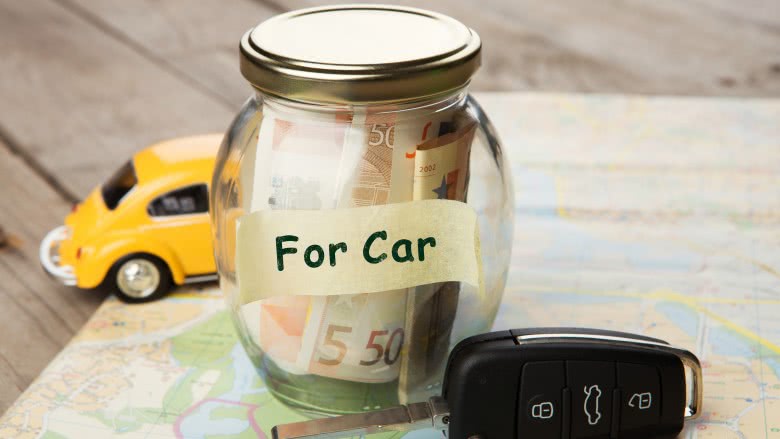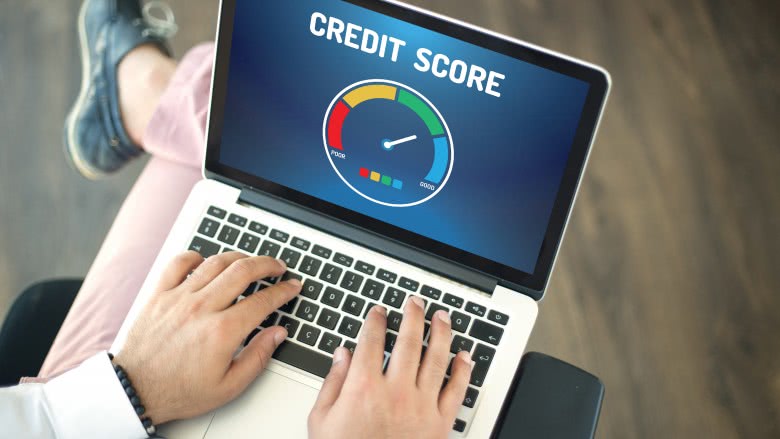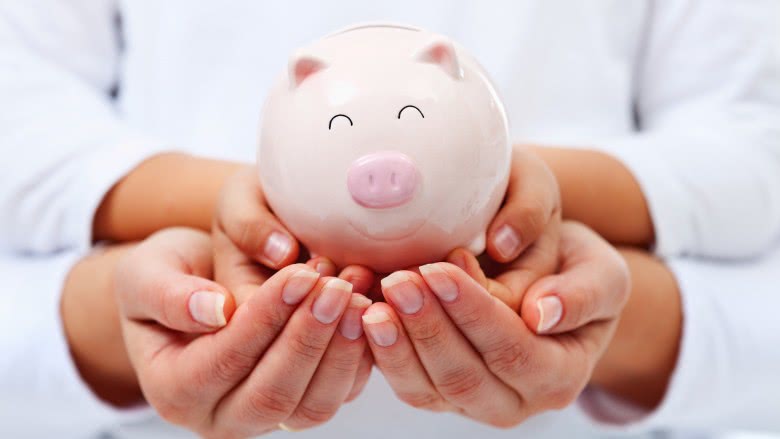False Facts You Believe About Money
While I have spent the majority of my life feeling like I was pretty good with my money, the older I get, the more there is to learn, understand, and navigate. Aside from the usual expected bills and rent payments, we also have to think about paying off student loans, buying new cars, making a downpayment on a house, and saving for retirement. If you're like me, these things can make your head start to spin. Throw in some credit card debt and suddenly, I'm not sure if it makes more sense to pay that off or opt in to my full time job's 401k program.
As I started to do my research and talk to friends and family in an attempt to figure out what made the most sense in approaching my own situation, I was immediately overwhelmed with information. While so much of the information made sense, a lot of it seemed contradictory and it became hard to know what was right from what was wrong. If there was one thing I learned, there's a lot of false information out there.
Clearly, I am no expert but lucky for you and me, there are people who specialize in and are paid to understand and help us break down the rhetoric of it all so we can make the decisions that are best for our personal financial situations. So what are some of the false facts the experts helped me squash? Let's get to it.
Keep a small balance every month on your credit card to build credit
For years, I was able to pay off my credit card balance in full each month and since I could, that was what I did, but then I started hearing people say that it was better for my credit if I left a little balance each month. I knew I had fairly good credit for someone my age but I wondered if I was hurting myself in the long run. "This couldn't be further from the truth," said finance professional Erica Holland of ModMoney, "but unfortunately, so many people believe it and pay thousands of dollars in interest expense as a result."
Holland went on to explain that the myth stems from the credit utilization factor on your credit score. "Potential lenders like to see that you can responsibly use and manage your credit lines without overextending yourself," she said, "The typical guidance is to keep your utilization below 20-30 percent. That means wisely using your credit cards throughout the month and paying off the full balance at the end." She continued on to explain that many people will misconstrue that to mean they should carry a balance of 20 percent of their credit limit.
Never close a credit card because it can hurt your credit score
I have a few credit cards, but lately I found myself feeling like it was time to pay one of them off and close it out. Truthfully, it can be so tempting to put a purchase on that card because I know it has the credit, but meanwhile, the question becomes if I can really afford what I'm wanting to buy or if it just feels like I can because I can put it on this card?
As I started to ask around, I started hearing rumors flying that closing out a credit card is going to hurt my credit score so I got a bit shy and have continued putting purchases on it throughout the month. Meanwhile, financial research analyst at MyBankTracker, Simon Zhen, was ready to put this idea into perspective.
"Generally, it is sound advice to maintain an old credit card account because it helps your credit score," he said. "However, if it carries high annual fees and encourages you to get into debt, you're better off closing the credit card account." He went on to add that closing the credit line may temporarily hurt your credit score but as long as you continue to use credit responsibly, it should recover just fine.
A low monthly payment means I can afford it
I recently turned 30 and have found myself toying with the idea of buying a house in the potentially very near future. As a single female, it may be a bit out of the ordinary but I'm feeling empowered and ready to plant some roots and build more personal equity, whether or not a man is in the picture.
With that said, I found Holland's opinion on the situation quite interesting and definitely worth mentioning. She started by saying that this idea that we can afford something simply because the monthly payment is low can often manifest itself in the form of a mortgage, car payment, or any other payment plan. "Consumers tend to hone in on the monthly payment amount, disregarding the term of the loan and the down payment," she said. "In reality, just because a car payment is only $179 per month doesn't automatically mean you can afford it. It's important to consider the required down payment and the lease/loan term, which can be very high and very long."
I've been saving up for my down payment, but I definitely appreciated the reminder and opportunity to think deeper into my situation knowing that there is another layer that we often overlook.
Focus all income on paying off debt instead of saving
When I graduated college, my parents gave me Dave Ramsey's The Money Answer Book and while at the time, we kind of laughed it off, I also knew they gave it to me for a reason. As previously mentioned, I considered myself pretty good with my money for years, but I also knew there was still a lot that I needed to learn and keep straight, and this book would provide a nice little resource when I found myself needing some guidance.
My biggest takeaway from that book and what often pops into my mind when I consider using my savings to pay off debt, is the need to have an emergency fund available. This point was also brought up by Zhen. "It makes sense financially to skip saving and put all income toward a 22 percent APR credit card or six percent student loan when savings rates are around one percent APY," he said. "However, there can be emergencies that set you back even more, if you didn't have an emergency fund to cover a surprise expense."
After a recent trip to the mechanic ended in needing new brakes and a replacement wheel bearing, you better believe I was happy to have that little stock pile set aside.
All credit scores are the same
This may make me rather ignorant, but the truth is that I had never given a second thought to credit scores not being the same until Zhen mentioned it, though once he did it started to make sense. He explained that there are many different credit scoring models out there. "A different credit scoring model can have different score ranges and they'll surely have a unique algorithm for generating that score," he said. "With various tools and websites offering free credit scores, they may not be getting the actual score that lenders use to approve new loan applications."
While there may be several scoring models, the most widely used comes from Fair Isaac Company, also known as your FICO score, and it is recommended to order a free copy of your credit report each year so you have an opportunity to check for errors and know your standing of getting approved for a loan, apartment, etc.
You need to have a large income to amass wealth
I must admit that for years I believed this to be true. I found myself frustrated with the income I was earning and never feeling like I could get ahead until my job gave me a raise or I found a new job with better pay. I recently started reading Unshakeable by Tony Robbins and even though I have yet to finish the book, if there is one thing I've already learned, it is that my salary has very little to do with my ability to get ahead.
If you've ever heard the saying, "It's not what you earn, it's what you save," then this likely comes as no surprise. "The single biggest determinant to how much wealth you will have is not your salary or how much your investments earn, it's how much you save," said certified financial planner, Ed Snyder of Oaktree Financial Advisors.
This idea reminds me of all of the celebrities who have made millions of dollars and then went on to file bankruptcy, like pop singer, Toni Braxton; it isn't about what you make, it's about living within your means and saving.
Having more money will make you happier
When you're feeling lost in the sea of debt or that you don't make enough money, it can be easy to fall into the trap of "when I have $X, then I'll be happy." Years ago when I was fresh out of college and working multiple jobs to pay my bills, I remember dreaming of the day when I made at least $30,000 a year. That felt like a lot of money in those days and I was sure if I made that amount, then I could pay my bills with ease and take myself out shopping when I pleased.
Fast forward nearly ten years later and while I may make more than $30,000 a year, the happiness and freedom I once expected at that salary didn't play out as anticipated. As Snyder said, "If you go spend it on things, those things may make you happy in the short-term, but that quickly fades. Then you don't have the money or the happiness."
This is where the idea of retail therapy really rears its ugly head, in my mind. If we're looking for comfort or a little extra happiness, we hit the mall or if you're anything like me, the local Target. I find something I like, buy it for myself, and get that instant little jolt of happiness, only to come off that shopping high a couple hours later and start questioning if that was the right way to spend that money. Personally, I think this is why the idea of living a more minimalist lifestyle is becoming so popular as we realize that our happiness doesn't lie in physical items or the money to buy such things, but rather within ourselves.
Money will buy you love
Continuing on from the idea that money will buy you happiness, there is a strong misconception that money can also buy love. If you have ever heard of The 5 Love Languages by Gary Chapman, then you likely understand that we all show and receive love in different ways, which include words of affirmation, acts of service, receiving gifts, quality time, and physical touch. While money may allow you to buy a gift for someone you love, it's my conclusion that unless that is their specific love language, it likely won't get you very far.
Relationship expert, April Masini, compared this idea of buying love to the relationship between parents and children after a divorce. "Divorced single parents tend to spend lots of money on their kids because they feel guilty about the divorce," she said. "It's important to teach children that bumps in the road come, and they're opportunities to rebound."
She went on to explain that money doesn't heal loss and when parents try to use it to do so, children come to resent the absence of attention to their hurt feelings and instead manipulate money to their advantage. It's best for everyone if we remember to keep the two — money and love — separate.
When it comes to relationships, money isn't important and love will conquer all
I once dated this guy who after going through a divorce, found himself in a very poor financial situation. To say he was stressed would be a major understatement. Truthfully, at the time we were together, I wasn't in the best place myself financially, but what I found was that the more time we spent together, the more stressed I got about my situation, and his too for that matter. I was looking for a second job and trying to put together the pieces needed to get myself back on track; I often noticed that if he was freaking out about money that day, suddenly I was too, it was like this mentality of there never being enough money was contagious!
Little did I realize at the time, I may have been on to something. "It's important when dating and forming relationships to have self knowledge about money, as well as an understanding that money compatibility in relationships is important," said Masini. "In fact, it's so important, it's a deal breaker." Sure enough, that relationship didn't last very long.
Masini went on to explain that our own relationship with money is just as important as our partner's relationship with money, and while love is a beautiful thing, there are some instances where it just is not enough. "Compatibility is often more important," she said, "and financial compatibility is crucial."
It's time to change how we think about money
In his book, Financial Peace Revisted, Dave Ramsey says, "You must gain control over your money or the lack of it will forever control you."
While I still may be no expert on the subject, remembering that money is a neutral resource in my life and that there are people who are able to help break down all of the confusion and explain how to manage my retirement options, has been a tremendous help in allowing me to navigate my personal situation and set myself up not only for a comfortable situation now, but also a prosperous and abundant future. Hopefully you also feel empowered now that you're armed with this knowledge to go out and taken control of your finances.










